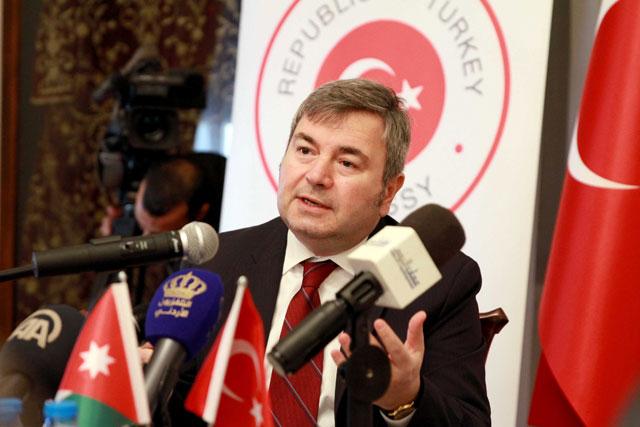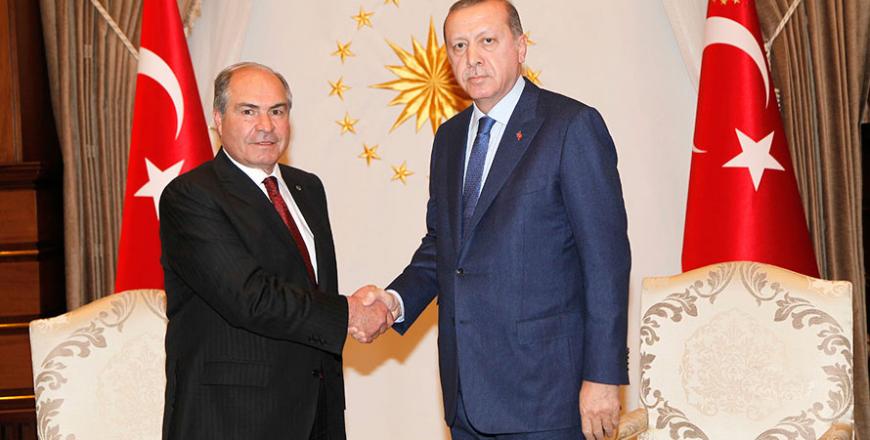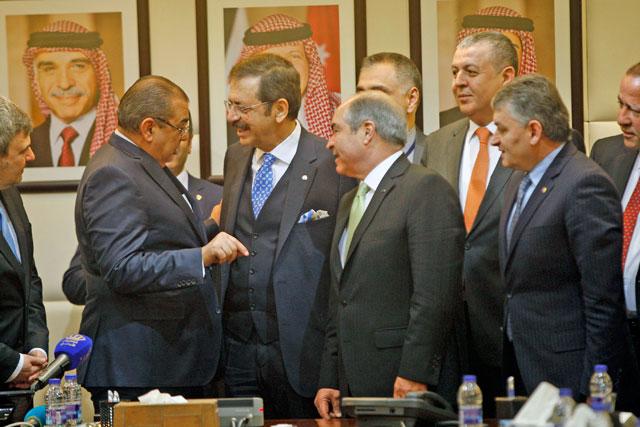You are here
Trade, regional crises on agenda during Mulki’s Turkey visit
By JT - Mar 06,2017 - Last updated at Mar 06,2017
AMMAN — Prime Minister Hani Mulki's one-day visit to Ankara on Tuesday will include bilateral discussions on several political and economic issues, Turkish Ambassador to Jordan Murat Karagöz said.
In an interview with Al Rai Arabic daily published on Monday, Karagöz said that the visit would include meetings with President Recep Tayyip Erdogan and Prime Minister Binali Yildirim, as well as visits to parliament and Ataturk Mausoleum.
Talks will focus on boosting the trade volume between both countries, the Syrian crisis and the refugee influx, the Palestinian issue, and means to enhance bilateral cooperation, the diplomat noted.
He highlighted the importance of the visit, where the Jordanian delegation will include ministers and economists, especially as it is the first visit by a Jordanian prime minister to Turkey in five years.
The ambassador noted that the similar challenges facing Amman and Ankara call for intensifying coordination and consultation, as well as encouraging Turkish investors to increase their investments in the Kingdom.
The diplomat said that there are some 3,500 Turkish citizens residing in Jordan and some 1,700 Jordanians residing in Turkey, adding that around 700 students are pursuing their studies in Turkey.
Meanwhile, current Turkish investments stand at $300 million, he said, noting that Turkish companies have implemented projects in Jordan worth $2.2 billion.
On terrorism, Karagöz stated that Daesh is the top threat to Turkey and other regional countries, and stressed that cooperation and coordination with Jordan on the fight against terrorism is ongoing.
As for the refugee crisis, he said that both countries share similar burdens in hosting Syrian refugees, noting that the support of the international community remains below the required level.
Regarding the establishment of safe zones in Syria, the ambassador pointed out that Turkey hosts more than 3 million Syrian refugees and the safe zones would allow Syrians to return home.
To achieve this, safe zones have to provide basic facilities, such as houses, health centres and schools, among others, he added.
Karagöz stressed that establishing safe zones in Syria is an idea that needs the support of all, and requires establishing a fund to support these infrastructure projects.
Related Articles
AMMAN — A series of activities will be held during the upcoming period in celebration of the passage of 70 years since the establishment of
AMMAN — Prime Minister Hani Mulki on Tuesday expressed Jordan's willingness to boost economic relations with Turkey through the establishmen
AMMAN — Prime Minister Hani Mulki on Tuesday stressed the importance of considering alternative routes and working out ways deemed appropria



















